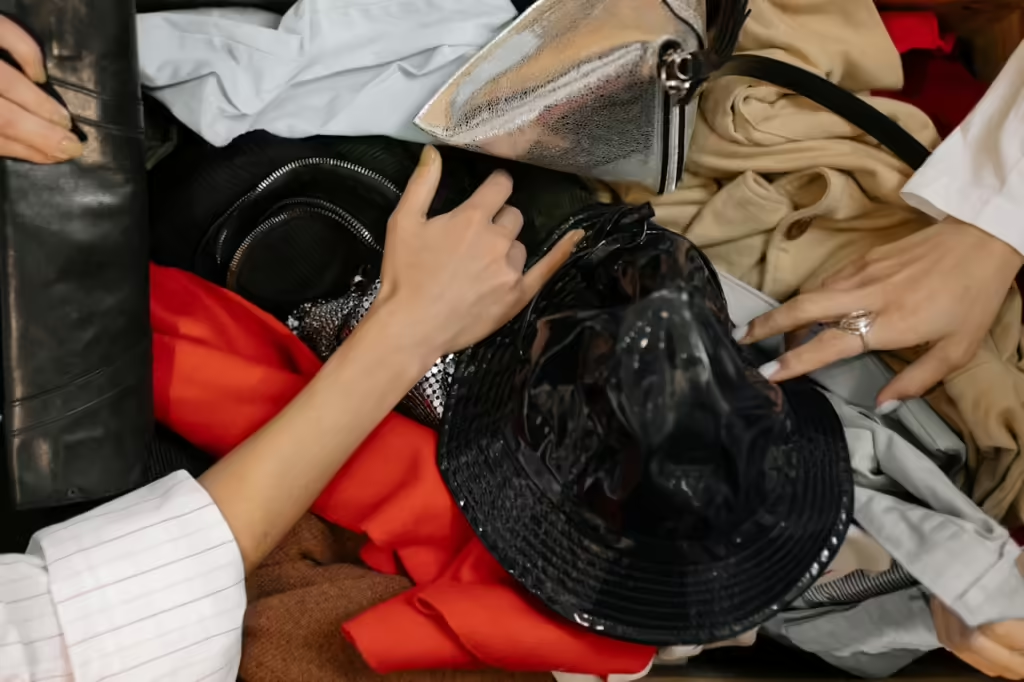Traveling to a new country offers an exciting opportunity to experience different cultures and customs. However, what might be acceptable behavior in one country can sometimes be perceived as rude or disrespectful in another.
When visiting the United States, it’s important to be aware of certain social norms and etiquette to avoid any unintentional offense. Understanding these cultural differences can help tourists navigate their visit more smoothly and foster positive interactions with locals.
In this blog post, we’ll explore ten common behaviors that Americans often find rude, helping you to make a great impression during your stay.
Not Tipping in Restaurants

Tipping is expected in American restaurants. Servers depend on tips, and not leaving one is seen as rude and disrespectful. In the U.S., the tipping culture is deeply ingrained, and it’s common to leave a 15-20% tip based on the total bill.
This practice isn’t just limited to high-end dining; it extends to cafes, diners, and even food delivery services. The custom stems from the fact that servers are often paid below the minimum wage, relying on tips to make up a significant portion of their income.
Tourists who are unaware of this might unintentionally offend their servers by not tipping, resulting in an awkward situation. Moreover, the tipping culture also applies to other services like hairdressers, taxi drivers, and hotel staff.
Understanding and participating in this practice can greatly enhance the experience of interacting with locals and service providers.
Bargaining in Markets

Haggling over prices is uncommon in the U.S. Trying to negotiate in stores or markets can be considered inappropriate. Unlike in many other parts of the world where bargaining is a common part of shopping, most American markets and stores have fixed prices.
Exceptions might exist in flea markets or antique stores, but even then, negotiations are typically subtle and polite. Bargaining aggressively or insisting on lower prices in a typical retail environment can come off as disrespectful or ignorant of local customs.
It’s essential to recognize the cultural norms surrounding shopping in different countries. In the U.S., displaying respect for set prices and understanding the value attributed to goods and services is crucial. By adhering to these norms, tourists can avoid potential misunderstandings and enjoy smoother transactions.
Burping After a Meal

Burping is generally viewed as impolite in the U.S. Unlike some cultures, it’s not seen as a compliment and should be avoided in public. In many Western cultures, including the United States, burping is considered a lack of manners and etiquette, especially in public or formal settings.
It’s associated with poor upbringing and a disregard for those around you. Tourists who come from cultures where burping is a sign of appreciation for the meal might need to adjust their behavior to fit the American norm.
Additionally, it’s polite to excuse oneself if a burp does slip out. Proper dining etiquette in the U.S. also involves other practices, such as chewing with your mouth closed, not talking with food in your mouth, and using utensils properly. Observing these practices shows respect for the host and fellow diners.
Avoiding Eye Contact

Direct eye contact is important in American communication. Avoiding it can be perceived as a sign of dishonesty or lack of interest. Eye contact plays a crucial role in non-verbal communication in the U.S. It signifies attentiveness, confidence, and sincerity.
When conversing with someone, maintaining appropriate eye contact is seen as a sign of respect and engagement. On the contrary, avoiding eye contact might lead people to believe you are uninterested, hiding something, or lacking confidence.
However, it’s also important to strike a balance, as overly intense eye contact can be perceived as confrontational or invasive. Understanding this nuance can help tourists communicate more effectively and leave a positive impression.
Eye contact practices can vary significantly between cultures, so being mindful of these differences is essential when interacting with people from diverse backgrounds.
Chugging Alcohol

Drinking quickly or to excess is often frowned upon. Americans usually prefer a more moderate approach to drinking in social settings.
While alcohol consumption is common in social gatherings in the U.S., there is a strong cultural emphasis on moderation and control. Binge drinking or consuming large quantities of alcohol quickly is typically viewed as irresponsible and immature.
In social settings like parties, bars, or family gatherings, it’s expected that people will drink responsibly and pace themselves. This approach to drinking helps maintain a pleasant and respectful atmosphere.
Tourists should be mindful of their drinking habits and be aware of the legal drinking age, which is 21 in the U.S. Public intoxication is also taken seriously and can result in legal consequences. By understanding and respecting these norms, tourists can enjoy social occasions without causing discomfort or offense.
Arriving Late

Punctuality matters in the U.S. Being late to appointments or social gatherings can be seen as disrespectful and inconsiderate. In American culture, time is highly valued, and punctuality is a sign of respect and reliability.
Whether it’s a business meeting, a social event, or a casual get-together, being on time is crucial. Arriving late can disrupt schedules and indicate a lack of respect for others’ time. This emphasis on punctuality extends to various aspects of daily life, including work, school, and public transportation.
For tourists, it’s important to plan accordingly and allow extra time for travel to ensure they arrive on time. If lateness is unavoidable, it’s polite to inform the host or the person you’re meeting as soon as possible. Understanding this cultural norm can help tourists make a positive impression and avoid misunderstandings.
Cutting in Line

Queue etiquette is strictly followed. Cutting in line is viewed as rude and unfair to others who are waiting. Americans take the concept of “first come, first served” seriously, and cutting in line is considered a major breach of social etiquette.
Whether it’s waiting for a bus, at a grocery store checkout, or for entry into an event, respecting the order of the queue is expected. Cutting in line not only disrespects those who have been waiting but can also lead to confrontations.
Tourists should be aware of and adhere to this practice to avoid conflict and show respect for others. In some situations, people may allow someone with fewer items or in a hurry to go ahead, but this should be done politely and with permission.
Recognizing and following these norms helps maintain order and fairness in public spaces.
Talking Loudly in Public

Loud conversations in public places can be disruptive. Americans tend to appreciate quieter discussions in shared spaces.
Public places like restaurants, public transportation, and parks are expected to maintain a certain level of quiet to ensure a pleasant environment for everyone. Speaking loudly or having animated conversations can be considered rude and intrusive.
It’s important to be mindful of the volume of your voice and the content of your conversation, especially in settings where others are seeking a peaceful experience. This doesn’t mean that Americans don’t enjoy lively discussions; rather, they prefer these to occur in appropriate settings where noise won’t disturb others.
Tourists should be aware of their surroundings and adjust their behavior to match the social norms of the place they are in. By doing so, they can avoid unintentionally disrupting the atmosphere and show consideration for others.
Invading Personal Space

Personal space is highly valued. Standing too close to someone, especially a stranger, can make them uncomfortable. In the U.S., maintaining personal space is an important aspect of social interactions.
People typically expect a certain amount of physical distance during conversations and in public settings. Invading this personal space can make others feel uneasy and can be perceived as aggressive or overly familiar.
The appropriate distance varies depending on the relationship and context, but a general rule of thumb is to keep at least an arm’s length distance when talking to someone you don’t know well.
In crowded places, people may need to stand closer together, but even then, it’s important to be aware of body language and cues indicating discomfort. Tourists should be mindful of these norms to ensure their interactions are positive and respectful.
Not Covering Your Mouth While Coughing/Sneezing

Covering your mouth when coughing or sneezing is expected. Failing to do so is seen as impolite and unhygienic.
Good hygiene and consideration for others’ health are important in American culture. Not covering your mouth when you cough or sneeze can spread germs and is considered very rude.
The proper etiquette is to use a tissue or your elbow to cover your mouth and nose. This practice helps prevent the spread of illnesses and shows respect for the health and well-being of those around you. Especially in the wake of the COVID-19 pandemic, such hygiene practices have become even more critical.
Tourists should be mindful of these expectations to avoid offending others and to contribute to a healthier public environment. Carrying tissues or hand sanitizers can also be a good practice when traveling to ensure you can maintain these standards of hygiene.
Being mindful of cultural differences is key to respectful and enjoyable travel experiences. By understanding and avoiding these behaviors that Americans find rude, tourists can ensure they show respect and consideration for their hosts.
Embracing local customs not only helps in blending in better but also enriches the travel experience by fostering positive interactions and understanding. Remember, every culture has its own set of social norms and etiquette, and being aware of them is a step towards becoming a more conscientious and respectful traveler.
So, as you embark on your journey to the U.S., keep these tips in mind to make your trip more pleasant and memorable for both you and those you meet along the way.







